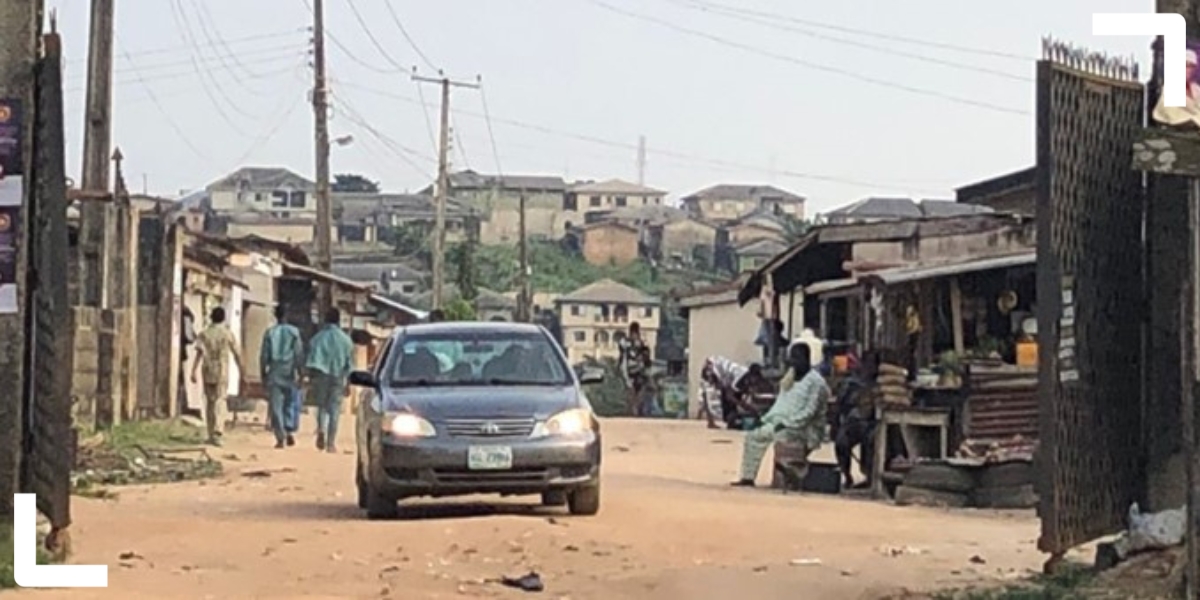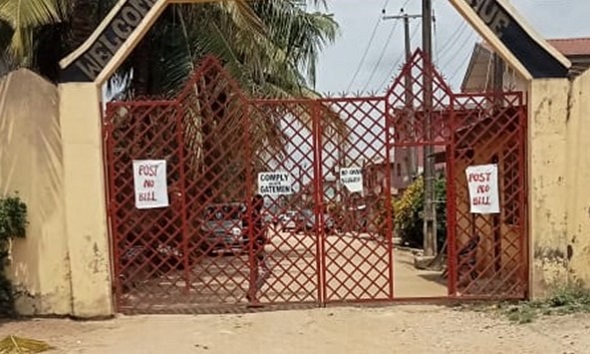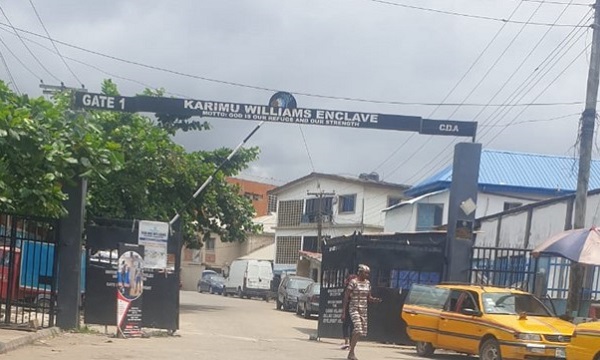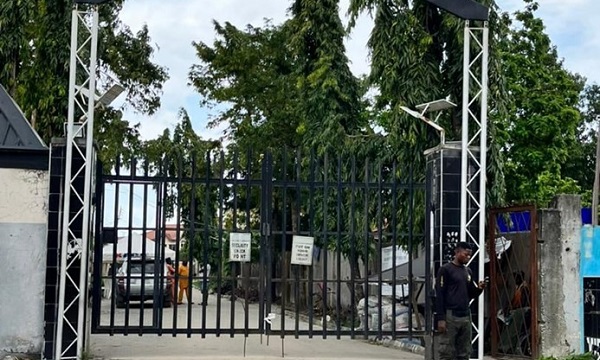By Adewumi Badiora, ACRC Lagos safety and security domain lead
Lagos is the commercial nerve centre of Nigeria and one of the fastest-growing cities in the world. It is also Africa’s largest city in terms of population size, with the researchers projecting that its population will be over 30 million by 2030.
Due to its population and the fact that extensive federal government properties are located in the city, Lagos has special political status in Nigeria, with about 8% of the total registered voters living in Lagos, according to Independent National Electoral Commission’s figure. Now home to over 21 million residents, the city’s rapid population expansion has brought both massive opportunities and severe challenges.
Rapid urbanisation has been poorly managed, with decaying social and public infrastructure. This has serious implications for the city system – adversely affecting employment opportunities, food supplies, social services, energy consumption, housing, transport, water, waste disposal services and environmental protection, as well as law and order. These challenges combine to make the city vulnerable to crime, violence and disasters. Violent crime and the need for emergency management threaten human welfare, discourage the growth of small and medium-sized enterprises (SMEs), hamper social development and are creating serious public safety and security challenges.
Understanding safety and security in Lagos
The domain research conducted in Lagos explores the dynamics of safety and security in the city and reveals high levels of violent crime, such as armed robbery, assaults, thefts, cultism and banditry. Newly emerging crimes and security challenges are also evident, such as kidnapping, cybercrime, drug dealing, terrorism, ritual killing and traffic robbery (known as “one-chance”).
There are spatio-temporal dimensions to these incidences. Lagos is divided into three main geographical areas (see Figure 1), each of which experiences crime in particular ways. The peri-urban area lies on the fringes, outside the main urban area, and features a mix of agricultural activities and other land use, such as low- and middle-class residential areas and SMEs. Lagos Island is a high-class business and administrative area, and also has affluent residential areas which are home to upper-class politicians, professionals, private sector executives and government members. The mainland of Lagos is a fully residential and industrial area, where about half of the city’s population lives, including middle and lower classes.
Tayo Bello Avenue, Ikorodu – a peri-urban gated community in Lagos. Photo credit: Gbenga Jephthah
Youth are mostly the perpetrators of these crimes. There are several drivers and enablers of youth crime, including youth unemployment, inequality, proliferation of small arms and drugs. Our study shows that the inadequate and under resourced police department is making efforts, but this key institution is narrow-concentrated. The state (particularly, the federal government) has the power to act decisively on security infrastructure and investment issues, and as a result, the limited safety and security resources are oriented towards the benefit of the elites and VIPs.
Our study shows that Lagos residents have been coping with this situation through a combination of the few available state safety and security services, as well as individual actions and community responses. One example of such individual and community efforts is to construct gates at different scales, from the micro realm of individual houses to broader areas of streets, neighbourhoods and communities.
Figure 1: Map of Lagos indicating geographic divisions
The growing popularity of gated communities
Gated communities (GCs) are increasingly fashionable in Lagos and have become pervasive in many areas of the city. There is hardly any building, street or neighbourhood without a fence or gate. These restricted access housing areas are planned to privatise usually public spaces. Such developments are found in newly developed residential areas on Lagos Island, as well as older mainland and peri-urban areas that are being reconstructed to provide adequate safety and security. During our 2022 survey, we met home suppliers who estimated that at least 4-5 million, and potentially many more Lagosians are seeking this new form of shelter from the threat of violent crime that has engulfed some parts of the city.
While early GCs were restricted to the areas where the political and economic elites lived on Lagos Island, they are now spreading to new residential developments in the middle-class areas of Lagos mainland and peri-urban areas. In addition, existing housing areas of both rich and poor residents are increasingly using perimeter fences and gates to segregate themselves.
Status, security or segregation?
Based on the residents’ primary motivation, gated communities in Lagos can be classified in two ways. In elite localities, the gates indicate distinction and status. By creating and protecting a secure place on the social ladder, these neighbourhoods become territories of the elites, the very affluent and the political class.
The second type is the security area, where the key motivation for gating is fear of crime, which is the primary justification for most new forms of GC. In Ibeju-Lekki, Ikoyi, Victoria Island and other areas where gates and perimeter fences have become the pattern, some respondents argued that certain forms of crime, such as theft and burglary, have reduced. On the other hand, some respondents indicated that the crime rate in the gated communities is only slightly altered by gating and fortifications. Nonetheless, people report less fear in such community settings.
The increasing phenomenon of GC in Lagos has benefits andalso raises concerns. While the reduction in fear is essential, since it can lead to increased social contacts, which can in turn reduce crime and fear in the long run, we should also be mindful that GCs are fuelling the drive towards exclusion, political instability and citizen alienation – all of which define crime and insecurity in Nigeria. Lagos has become more fragmented and unequal than ever before in terms of access to urban space and public services. GCs have continued to exacerbate inequality in Lagos, as public services are narrowly concentrated and privatised, and where the community of responsibility stops at the subdivision gates. Street gates increase community safety within the gates, while worsening traffic situations, and diminishing mobility and sociality of city dwellers more generally, particularly in neighbourhoods where gated streets are meant to serve as alternative link and emergency routes.
Opened Gate 1 of Karimu Williams Enclave, Yaba, Lagos mainland area. Photo credit: John Akinleye
Closed gate of Thera Miracle Zone, Sangotedo, Lagos Island. Photo credit: Ganiya Oresanwo
Implications beyond the gates
It might be argued that GCs in Lagos are becoming a small-scale version of the separation mindset that defines Nigeria as a country, with its larger spatial separation by religion, ethnicity, political ideology and socioeconomic opportunities. As citizens of Lagos divide themselves into homogenous, independent compartments, their place in the regional, national and greater political entity and society becomes weakened. This in turn increases resistance to efforts to resolve issues around local crime, conflicts and communal crises, let alone state, regional and federal problems.
There is a risk that GC residents’ feelings of insecurity will become heightened as people outside the gates feel relatively deprived. Then the desire for safety and security becomes a mirage, as the harsh socioeconomic conditions for a large stratum of the Lagos urban population living in informal settlements and outside the gates worsen. There is a need for realistic legislation for the regulation of gates, perimeter fences and walled communities. In addition, government and non-government sectors must vigorously pursue efforts to increase access to safety and security resources and reduce socioeconomic inequality among Lagos residents.
Photo credits: Header photo by Ganiya Oresanwo shows the opened gate of Home of Grace Estate, Ikorodu – a peri-urban gated community in Lagos.
Ganiya Oresanwo, John Akinleye and Gbenga Jephthah are research assistants for the ACRC safety and security domain in Lagos.
Note: This article presents the views of the author featured and does not necessarily represent the views of the African Cities Research Consortium as a whole.
The African Cities blog is licensed under Creative Commons Attribution-NonCommercial-NoDerivatives 4.0 International (CC BY-NC-ND 4.0), which means you are welcome to repost this content as long as you provide full credit and a link to this original post.





